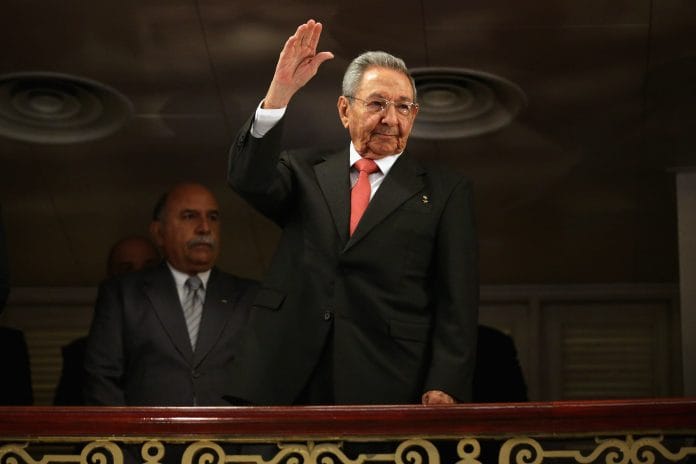April 17 is Raul Castro’s last day as the President of Cuba, and the transition to a new presidency is a landmark for the country. The missile strike against Syria by the United States, Britain and France is proof that diplomacy will be sidelined in order to make a point, even though diplomacy is possibly the only solution to stop the bloodshed. Meanwhile, accusations of corruption against the African National Congress in South Africa are mounting.
A new Cuba
On April 18, Miguel Diaz-Canel will be sworn in as the new president of Cuba — and for the first time in six decades, Cuba will have someone who is not a Castro at its helm.
“No one expects Cuba to radically change course. Although Raul Castro is officially stepping aside, he’ll go no further than the top slot at the Cuban Communist Party, where eminence grise is the new khaki. And don’t expect a truce in the sexagenarian feud between Havana and Washington, which has only escalated under Trump,” writes Mac Margolis in Bloomberg View, arguing that relations with the United States will more or less remain the same.
“Even as public diplomacy festers, in recent months shared policy initiatives, technical cooperation pacts and binational task forces have survived and, in some cases, even strengthened.”
“More than neighborly good will, U.S.-Cuban cooperation speaks to a broader awareness of the challenges of hemispheric security — one that has weathered years of the brute diplomacy that so many of the region’s ideologues have favored, and which threatens to rear up again,” writes Margolis.
“Beating world-class criminals will be just as daunting as reinventing the New World’s oldest command economy. But the U.S. and Cuba share too many interests and vulnerabilities to indulge the hoary antagonisms of last century’s quarrel.”
“A gesture, not a message”
“The weekend’s bombing of Syria, led by the United States with the United Kingdom and France in tow, was intended to send a message: that we will not tolerate the use of chemical weapons against civilians, and if diplomacy cannot prevent it then we will use force,” editorializes The Guardian.
“Last year the US bombed Syria in response to a chemical attack in Khan Sheikhun. The fact that they are doing the same thing again a year later shows that the message Mr Assad received from the last, limited attack was that he would not be seriously punished if he did it again. President Macron claimed over the weekend that “we had reached a point where these strikes were necessary to give back the [international] community some credibility”. Which raises the question: with whom did we have credibility before?”
Calling it a “US military operation”, the editorial board writes that had Trump not gone ahead and bombed Syria, the UK and France would not have followed suit. “There are no easy options in Syria and the international community should be ashamed that our interventions, be they military or diplomatic, have failed to bring peace. Mr Trump is not the man to repair the consequences of earlier mistakes.”
“We hope Assad, Russia and Iran take this latest attack as proof that the international community is prepared to buttress its diplomacy with force when necessary, even as we fear that they won’t. There will not be a military solution to this conflict. And while a diplomatic solution has proved elusive, it is the only one that will stop the bloodshed,” the editorial board writes.
Yet another corrupt national party
“In the generation since apartheid ended in 1994, tens of billions of dollars in public funds — intended to develop the economy and improve the lives of black South Africans — have been siphoned off by leaders of the A.N.C., the very organization that had promised them a new, equal and just nation,” write Norimitsu Onishi and Selam Gebrekidan in the New York Times.
Since the end of apartheid, poverty in South Africa has declined but the society remains one of the world’s most unequal.
“Corruption has enriched A.N.C. leaders and their business allies — black and white South Africans, as well as foreigners. But the supposed beneficiaries of many government projects, in whose names the money was spent, have been left with little but seething anger and deepening disillusionment with the state of post-apartheid South Africa.”
Jacob Zuma was ousted in this wave two months ago, and his replacement Cyril Ramaphosa declared fighting corruption a priority. “But he is also a veteran A.N.C. insider, and the early signs have not been encouraging,” Onishi and Gebrekidan report.
“But many have given up on the A.N.C. Though the money lost in the dairy farm paled in comparison to the scale of corruption inside South Africa’s state-owned enterprises, it resonated deeply across the nation. Government money meant to help poor farmers simply vanished, the way it does across South Africa, and so far none of the A.N.C. officials in charge at the local or provincial levels have been held to account.”






